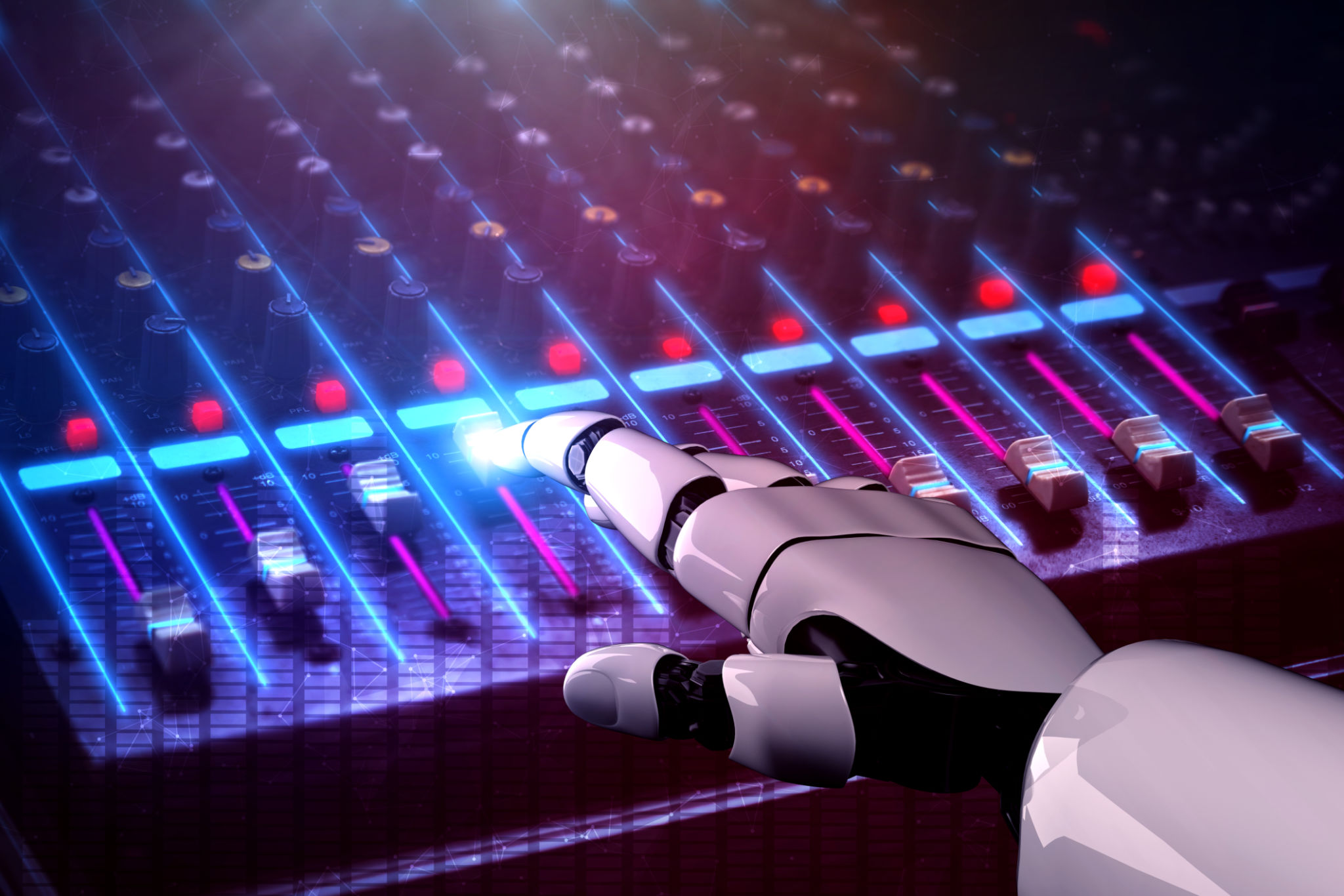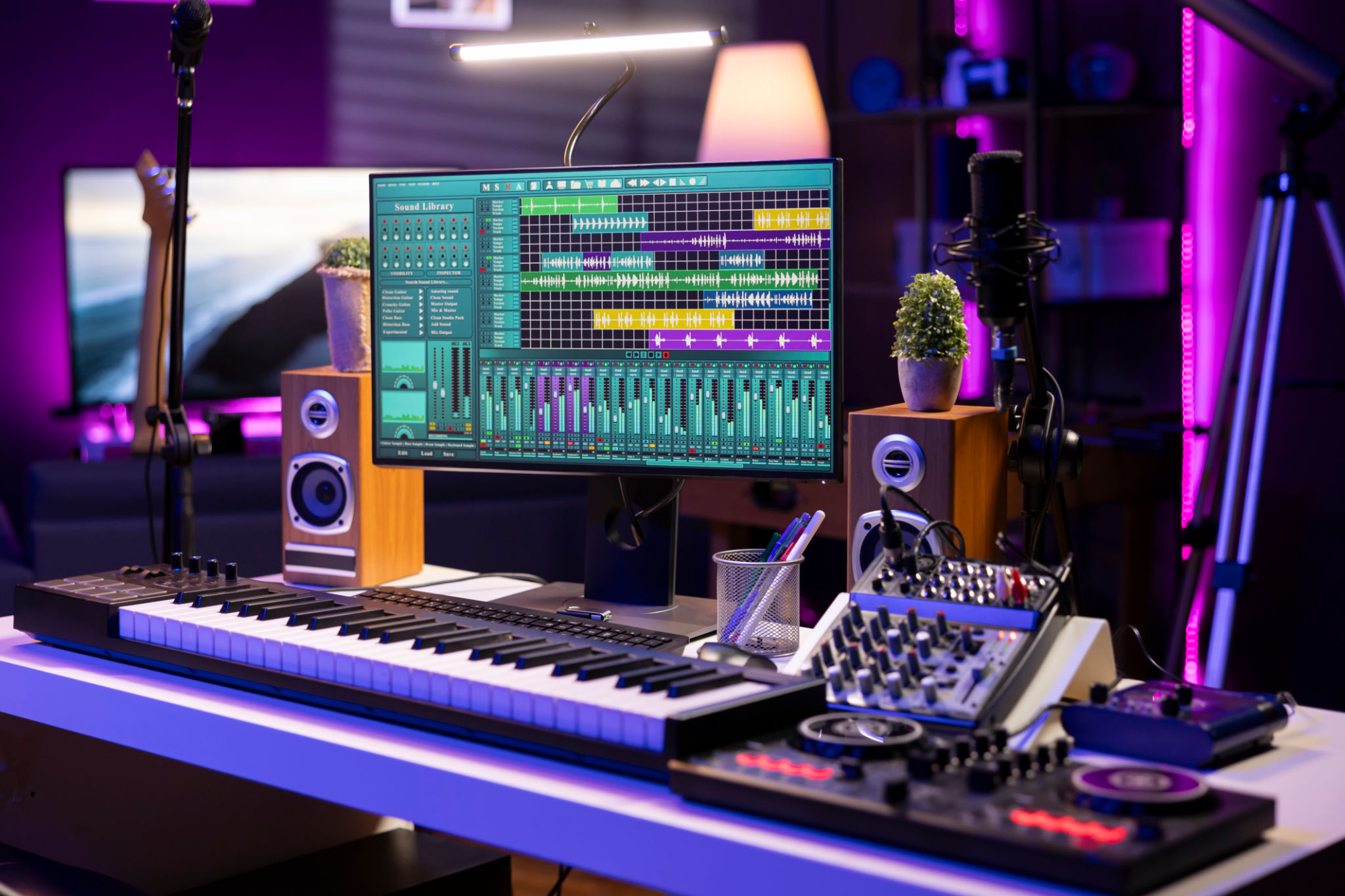Using AI in Music Production: The Future of Sound Design
Introduction to AI in Music Production
The music industry is undergoing a significant transformation, driven by the integration of artificial intelligence (AI) into various aspects of music production. From composition to sound design, AI is reshaping how artists create and produce music. This evolution is not just a fleeting trend but a glimpse into the future of sound design.
AI technology offers musicians and producers the tools to explore new sonic territories, automate tedious tasks, and even collaborate with virtual entities. As we delve deeper into the potential of AI, it becomes evident that the future of music production is being defined by this technological innovation.

The Role of AI in Composition and Arrangement
One of the most exciting applications of AI in music production is its role in composition and arrangement. AI algorithms can analyze vast amounts of musical data to generate melodies, harmonies, and rhythms that are both complex and innovative. This capability enables musicians to experiment with styles they may not have previously explored.
For instance, AI-powered software can suggest chord progressions or create entire backing tracks based on a few input parameters. These tools not only save time but also provide a source of inspiration for artists seeking fresh ideas.
AI-Driven Sound Design
Sound design is another area where AI is making a significant impact. AI can synthesize new sounds, model instruments, and even replicate the acoustics of famous venues. By using machine learning techniques, producers can manipulate audio in ways that were previously unimaginable.
AI-driven sound design tools offer features such as real-time audio analysis and adaptive mixing, allowing for highly customized soundscapes. Producers can fine-tune every aspect of their tracks with precision, ensuring that each element contributes to the overall vision.

Enhancing Live Performances with AI
AI is also transforming the live music experience. Musicians can use AI to create dynamic performances that adapt to the audience's reactions in real-time. For example, AI can modify lighting, visuals, and even alter musical elements based on crowd engagement.
This interactive approach to live performances provides an immersive experience for audiences and allows artists to connect with their fans in innovative ways. As AI continues to evolve, the potential for creating unforgettable live shows will only increase.
Challenges and Ethical Considerations
Despite its advantages, the integration of AI in music production does come with challenges. One concern is the potential loss of human touch and creativity. While AI can generate music, it lacks the emotional depth and individuality that human artists bring to their work.
Furthermore, there are ethical considerations regarding copyright and authorship. As AI-generated music becomes more prevalent, the industry must address who owns the rights to these creations and how they are credited.

The Future of AI in Sound Design
Looking ahead, the future of AI in music production holds immense promise. As technology advances, we can expect even more sophisticated tools that will blur the lines between human and machine creativity. This evolution will likely lead to new genres and styles of music that challenge traditional norms.
The collaboration between humans and AI in music production has only just begun. As more artists embrace these technologies, we will witness a new era of sound design that pushes the boundaries of what is possible in music.